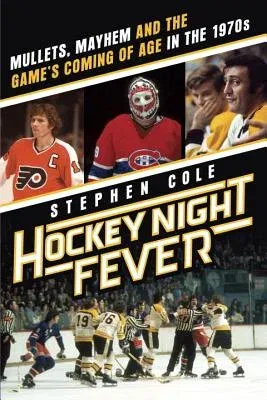A wildly evocative chronicle of the decade that changed hockey
forever.
Lady Byng died in Boston read a sign in the Garden arena in 1970, a
cheery dismissal of the NHL trophy awarded the game's most gentlemanly
player. A new age of hockey was dawning. For 30 years, hockey was an
orderly and (relatively) well-behaved sport. There was one Commissioner,
six teams and five colours--red, white, black, blue and yellow. Oh, and
one nationality. Until 1967, every player, coach, referee and GM in the
NHL had been a Canadian. And then came NHL expansion, the founding of
the WHA, and garish new uniforms. The Seventies had arrived: the era
that gave us not only disco, polyester suits, lava lamps and mullets but
also the movie Slap Shot and the arrest of ten NHL players for on-ice
mayhem. But it also gave us hockey's greatest encounter (the 1972
Canada-Russia Summit), its most splendid team, the 1976-77 Montreal
Canadiens, and the most aesthetically satisfying game--the three-all tie
on New Year's Eve, 1975, between the Canadiens and the Soviet Red
Army.
Modern hockey was born in the sport's wild, sensational, sometimes ugly
Seventies growth spurt. The forces at play in the decade's battle for
hockey supremacy--dazzling speed vs. brute force--are now, for better or
worse, part of hockey's DNA. This book is a welcome reappraisal of the
ten years that changed how the sport was played and experienced.
Informed by first-hand interviews with players and game officials, and
sprinkled with sidebars on the art and artifacts that defined Seventies
hockey, the book brings dramatically alive hockey's most eventful,
exciting decade.

